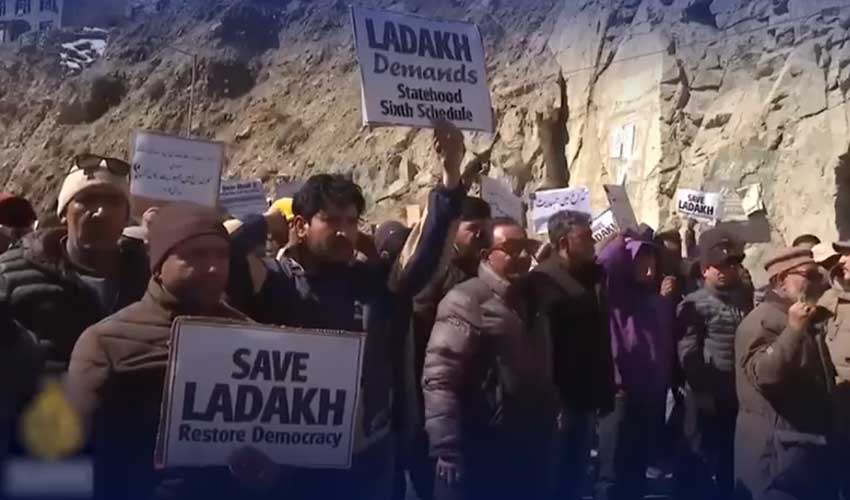In August 2019, India's ruling party, BJP, abolished Kashmir's special status and divided Ladakh. The region was put under direct control from New Delhi, leading to democratic backwardness. This move sparked protests, with the Kargil Democratic Alliance and Leh apex body staging a complete shutdown.
Locals in Ladakh are demanding statehood, which grants legislative, judicial, and administrative autonomy as per the Indian constitution. They fear losing their tribal identity under the current setup, Al Jazeera reported.
#Ladakh's journey as a Union Territory has been marked by protests and calls for greater representation and protection.
— SAMAA TV (@SAMAATV) March 27, 2024
Last year, a high-powered committee was established to address concerns from both Leh and Kargil regions.#SamaaTV pic.twitter.com/f5tnyUd2AF
Leaders in Ladakh have voiced concerns about their loss of political representation and the imposition of laws from New Delhi. Negotiations with the Indian Ministry of Interior on March 6, 2024, yielded no results, prompting social activist Sonam Wangchak to announce a hunger strike.
Wangchak emphasized the need to transfer constitutional matters to address threats to their tribal identity. Moreover, Indian military infrastructure in Ladakh has raised concerns about democratic underdevelopment, lack of development projects, and environmental sensitivity.
The Central government's failure to address demands for Ladakh's statehood has only worsened the situation. Critics argue that while the Modi government champions democracy and secularism globally, it neglects to uphold these principles within its own borders.



























